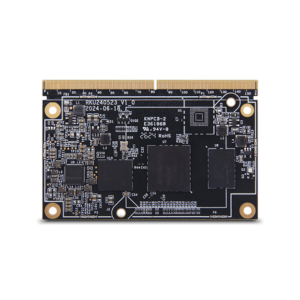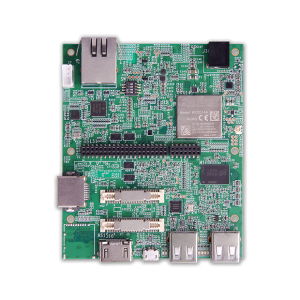Accelerating Product Development with Versatile Computer-on-Modules
Accelerating Product Development with Versatile Computer-on-Modules
Blog Article
In today's fast-paced technical landscape, corporations and developers are increasingly turning to modular options to generally meet the ever-growing demands of high-performance applications. One solution getting footing is the usage of embedded computer module. These compact, self-contained systems are loaded with the essential components of a pc, such as the processor, memory, storage, and connection interfaces, all integrated into an individual unit. In this short article, we discover why Computer-on-Modules are becoming a go-to selection for scalable, high-performance applications across numerous industries.

1. Lightweight Style and Integration
Among the major features of COMs is their lightweight sort factor. These adventures are made to integrate all critical the different parts of some type of computer, lowering the necessity for multiple distinct pieces and making it simpler to create small, space-efficient systems. That integration enables designers to build powerful alternatives without compromising the entire measurement of the end product, which is specially helpful in industries such as for instance embedded techniques, IoT products, and commercial automation.
2. Scalability for Varied Purposes
Scalability is a crucial factor for modern purposes, specially in sectors like telecommunications, automotive, and edge computing. With Computer-on-Modules, businesses can easily degree up or down with regards to the unique performance and resource requirements of their projects. Like, a company building an edge computing solution will start with an element that meets standard needs and then upgrade to more powerful segments since the workload or processing needs grow. This flexibility allows companies to future-proof their investments and arrange electronics with growing performance demands.
3. High-Performance Processing
Several high-performance applications require an effective computational backbone to handle challenging jobs such as real-time knowledge control, movie analytics, or equipment learning. COMs are generally made with effective processors, high-speed interfaces, and ample storage, creating them capable of delivering the high throughput and low-latency performance necessary for these applications. More over, their capacity to aid the newest processor architectures guarantees that methods can remain at the lead of performance benchmarks.
4. Charge Efficiency and Time Savings
Still another substantial benefit of applying Computer-on-Modules is charge efficiency. Because the modules come pre-integrated with necessary components, developers save both time and methods that will otherwise be spent on planning, screening, and assembling personal components. This could result in reduced progress rounds and a faster time-to-market for services and products, which can be essential in aggressive industries. Furthermore, since the electronics parts are standardized, the risk of incompatibility is reduced, leading to simpler growth processes and lower executive costs.
5. Flexible Modification
While COMs offer a high degree of integration, they are also designed for flexibility. Many COMs include various choices for I/O interfaces, memory configurations, and power management options, letting designers to target the component to the precise wants of the application. That versatility is very useful in industries wherever modification is key, such as for instance medical devices, robotics, and automotive applications.

Conclusion
To sum up, Computer-on-Modules present numerous benefits for firms and developers seeking to create scalable, high-performance solutions. Their small style, scalability, powerful running functions, cost-efficiency, and modification options make sure they are a perfect choice for a wide variety of applications. As industries continue to evolve and demand stronger, flexible answers, COMs can undoubtedly enjoy a essential position in shaping the continuing future of technology. Report this page